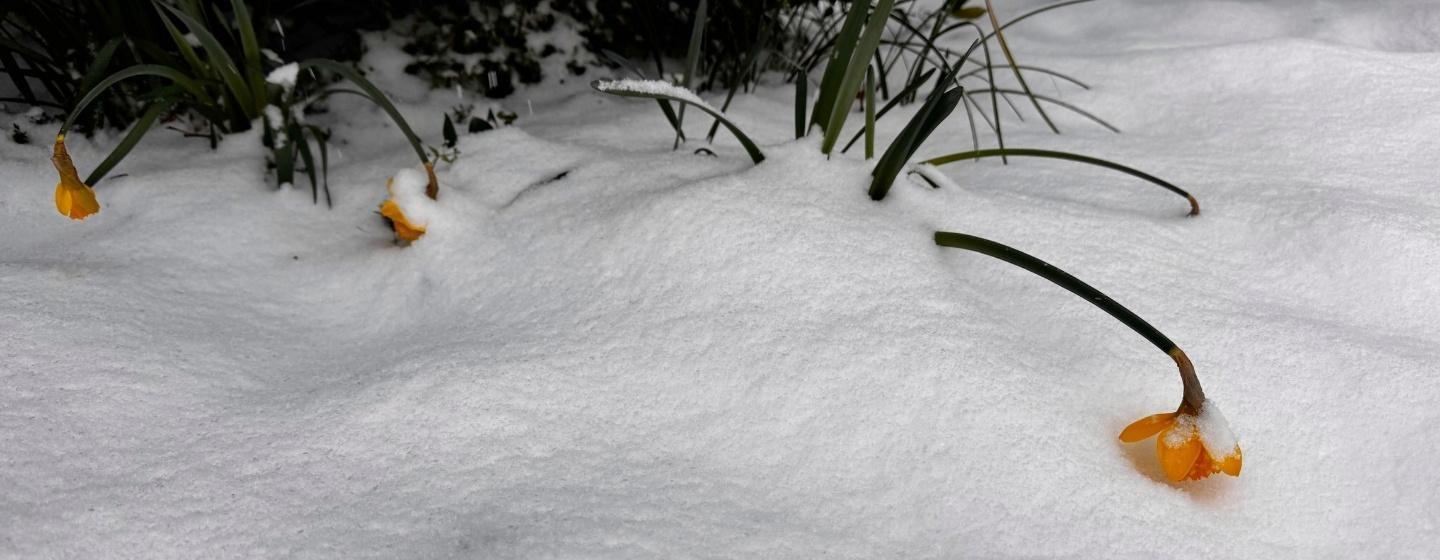Snow is Good for Your Garden


It has certainly been quite a winter. Record-setting cold snaps. Record snowfalls. And to go along with all that snow, we have plenty of ways to describe snow.
Beautiful? Yes, everything looks nice, covered in a blanket of white snow.
A mess? Yes, it does shut daily life down, creating some panic — and a lot of mud everywhere!
Fun? Yes, snowball fights, building snowmen, making snow angels, and sledding (provided there is enough snow) and then enjoying hot chocolate, are all fun snow related activities.
Good for the garden? Yes! It turns out snow provides several benefits, and it is often referred to, as the Old Farmer’s Almanac says, a “poor man’s fertilizer.”
Here’s why.
You can think of snow as a mild, slow-release fertilizer. Like rain, snow picks up nitrogen, sulfur and other trace elements from the air as it falls. That’s right, nitrogen and other chemicals attach to snowflakes and raindrops as the water droplets fall from the sky.
However, snow, by its nature, provides a better delivery method because the nutrients are released into the soil more slowly since it takes time for the snow to melt.
Snow is also a good insulator of the soil and plant roots. I know that’s hard to believe because snow is so cold, but when you think about it, snow is about 90-95% air surrounded by a little frozen water. That’s the reason the Inuit people built igloos from packed snow and ice to stay warm. Without that insulation from snow, if the temperature really drops, the soil can be frozen deeper and deeper. That’s not good if you’re a plant with shallow roots. Snow can help protect the roots.
Snow also delivers water. Hot summers aren’t top of mind in the winter, but the perennials in your garden still need water. That moisture also keeps the soil healthier and those cold, wet conditions provided by snow are what seeds need to sprout in spring.
Snow is also a natural air purifier, latching onto natural and manufactured pollutants and removing them from the air. It partly explains why the air just seems to smell cleaner after a snowfall.
Bottom line: enjoy the slow-down that snow provides and get ready for spring gardening. Now, go enjoy some hot chocolate!